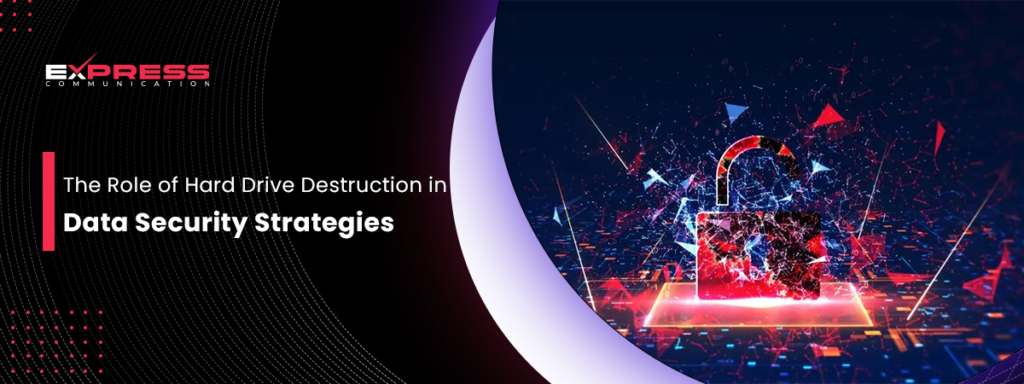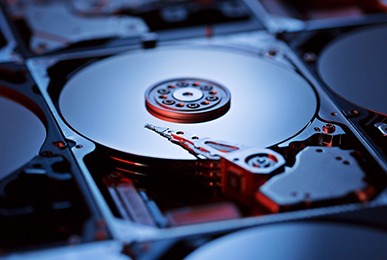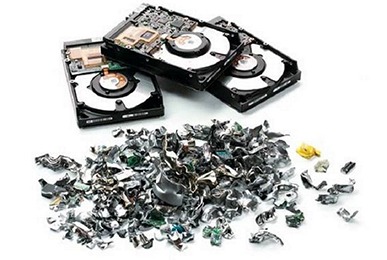
Have you ever wondered what happens to your old computer or phone once you get a new one? You might think it’s no big deal to just throw it away or recycle it, but have you considered the sensitive information stored on those devices? In today’s world, data security is a major concern, and one important aspect of it is data sanitization through hard drive destruction.
Table of Contents
What is Data Sanitization?
Data sanitization is the process of deliberately, permanently, and irreversibly removing or destroying the data stored on a memory device to make it completely unreadable. This can be done through various methods such as wiping, degaussing, or physically destroying the storage media. Data sanitization ensures that sensitive information doesn’t fall into the wrong hands when devices are discarded or repurposed.
Why is Hard Drive Destruction Important?
Hard drives store a significant amount of personal, financial, and business data. If this data gets into the wrong hands, it can lead to identity theft, financial loss, or corporate espionage. Simply deleting files or formatting a hard drive is not enough because the data can often be recovered using special software. To truly protect this information, the hard drive must be destroyed in such a way that the data cannot be reconstructed or read.
Methods of Hard Drive Destruction
- Shredding: This involves physically breaking the hard drive into tiny pieces using industrial shredders. The shredded parts are usually small enough to ensure that the data cannot be retrieved.
- Crushing: This method uses a hydraulic press or crusher to crush the hard drive, rendering it unusable.
- Degaussing: This process involves using a strong magnetic field to disrupt the magnetic domains on the hard drive, effectively erasing the data stored on it. However, this method is not effective on all types of hard drives, especially solid-state drives (SSDs).
- Disintegration: This method involves grinding the hard drive into fine particles. It is similar to shredding but results in even smaller particles, making data recovery virtually impossible.
When Should You Destroy a Hard Drive?
- End of Life: When a computer, laptop, or server reaches the end of its useful life, it’s essential to ensure that all data is completely removed before disposal.
- Device Upgrade: When upgrading to a new device, ensure that the old device’s data is securely destroyed to prevent any potential data breaches.
- Data Breaches: If a device has been compromised or there is a risk of data breach, destroying the hard drive can prevent further unauthorized access.
Legal and Regulatory Requirements
Many industries are subject to strict regulations regarding data privacy and security. For example, healthcare providers must comply with the Health Insurance Portability and Accountability Act (HIPAA), which mandates secure disposal of patient information. Similarly, financial institutions must adhere to the Gramm-Leach-Bliley Act (GLBA), which requires the protection of consumer data. Failure to comply with these regulations can result in heavy fines and legal repercussions.
Benefits of Professional Hard Drive Destruction Services
Using professional hard drive destruction services ensures that the destruction process is thorough and complies with legal standards. These services provide a certificate of destruction, offering proof that your data has been securely and permanently destroyed. This can be particularly important for businesses that need to demonstrate compliance with data protection regulations.
Risks of Improper Hard Drive Disposal
Improper disposal of hard drives can have serious consequences. Here are some of the risks:
- Data Breaches: If data is not completely destroyed, it can be recovered and used for malicious purposes.
- Identity Theft: Personal information can be stolen and used to commit fraud or identity theft.
- Corporate Espionage: Competitors may recover sensitive business information, leading to loss of competitive advantage.
- Legal Consequences: Failure to properly destroy data can result in fines and legal actions, especially if it leads to a data breach.
DIY vs. Professional Destruction
While it may be tempting to destroy your hard drives yourself, professional destruction services offer several advantages:
- Efficiency: Professional services have the equipment and expertise to quickly and effectively destroy large volumes of hard drives.
- Security: They follow strict protocols to ensure that data is completely destroyed, providing peace of mind.
- Compliance: Professional services are familiar with legal requirements and can help ensure that your data destruction process complies with relevant regulations.
- Documentation: They provide certificates of destruction, which can be important for audits and compliance purposes.
How to Choose a Hard Drive Destruction Service
When selecting a hard drive destruction service, consider the following factors:
- Reputation: Look for a service with a solid reputation and positive reviews.
- Certification: Ensure that the service is trusted and complies with industry standards for data destruction.
- Methods Used: Check the methods they use for destruction and ensure they meet your security requirements.
- Documentation: Ensure that they provide a certificate of destruction.
- Cost: Compare costs, but don’t compromise on quality and security.
Conclusion
Hard drive destruction is a crucial part of data security strategies. By ensuring that sensitive data is irreversibly destroyed, you protect yourself and your business from potential risks such as identity theft, data breaches, and legal consequences. Whether you choose to do it yourself or use a professional service, make sure that your data sanitization practices are thorough and compliant with legal requirements.
Hard drive destruction might seem like a daunting task, but it’s essential for safeguarding your information. Remember, data that isn’t properly destroyed can always come back to haunt you. So, take the necessary steps to ensure your data is securely and permanently destroyed.
By understanding the importance of data sanitization and incorporating it into your data security strategy, you can protect your personal and business information from falling into the wrong hands. Stay informed, stay secure, and always prioritize data protection in today’s digital age.





